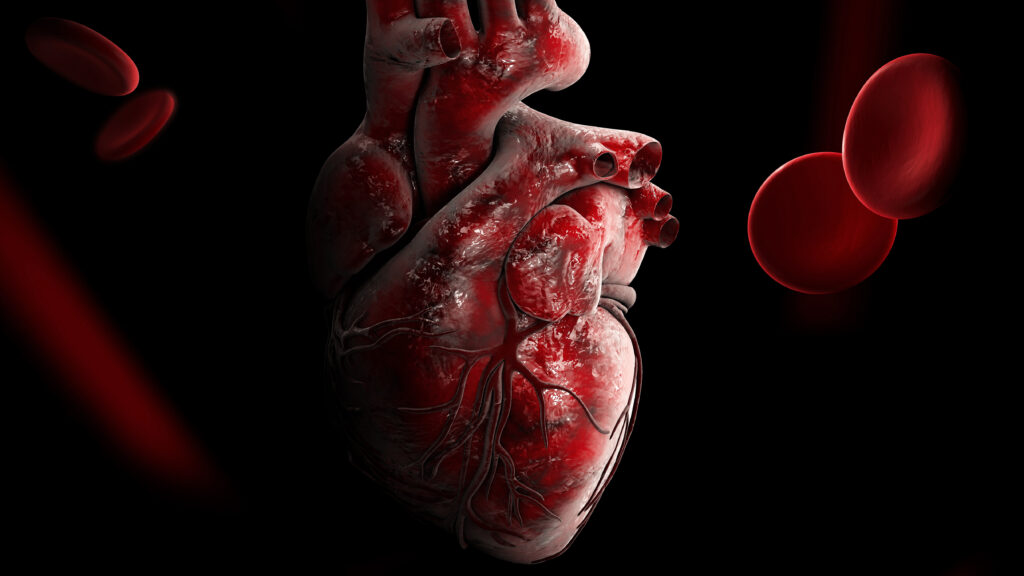A new study sheds light on what may be causing very rare cases of heart inflammation in young men after receiving an mRNA Covid vaccine.
Early hypotheses as to what was driving the heart inflammation, called myocarditis, included an allergic response to the vaccine, vaccine-induced antibodies, or an autoimmune response in which the immune system attacks the body’s own healthy tissue by mistake. But the study, published Friday in Science Immunology, doesn’t find evidence for any of these mechanisms.
Instead, when looking at cases in 23 patients, the researchers found signs of a revved-up immune system driven by inflammatory proteins.
“We were a little relieved that what we found was the inflammation-induced myocarditis,” said Akiko Iwasaki, one of the authors and a professor of immunobiology at Yale University. In particular, if the cases were driven by an autoimmune response, they “would be a little bit more difficult to treat and deal with.”
Currently, patients with myocarditis are prescribed anti-inflammatory drugs and steroids. If the condition were driven by an autoimmune response, people would potentially have to be given higher doses of steroids or take them for longer courses, risking more side effects, Iwasaki said.
Moreover, since the cases have mostly been seen after the second dose of an mRNA vaccine, the study’s findings lend credence to the idea that waiting more time between doses — to help the immune system and inflammation calm down — could help cut the risk of myocarditis, said Carrie Lucas, another author and an associate professor of immunobiology at Yale.
Cases of heart inflammation after vaccination tend to resolve quickly and are very rare. In the highest-risk group, teen boys, myocarditis occurred in 26.7 out of 100,000 cases after the second vaccine dose, while the condition occurred in 59 out of 100,000 cases after coming down with Covid, according to data from the Centers for Disease Control and Prevention. Myocarditis after vaccination also tended to be milder compared to myocarditis from other causes.
Still, “understanding who’s at risk is really important, and what the driving mechanisms are are very important, because it helps give insight into safety precautions or next generation vaccine development,” said Lael Yonker, a pediatric pulmonologist at Massachusetts General Hospital who wasn’t involved in the study.
The researchers behind the study explored each of the leading possibilities as to the root cause of myocarditis after vaccination. When they looked at blood samples, the researchers didn’t see greater antibody or neutralizing antibody levels in patients who had developed myocarditis compared with a control group, suggesting the heart condition wasn’t driven by vaccine-induced antibodies.
The researchers then looked for signs of an autoimmune response. They didn’t find any autoantibodies, and the pattern of immune cells that proliferated also didn’t look like the pattern typically seen in an autoimmune response.
They then proceeded to do more detailed analysis of the patients’ blood samples. They found elevated levels of inflammatory proteins, such as ones called interleukin-15, and also found a proliferation of tissue-damaging immune cells that looked to be activated by inflammatory proteins. Taken together, the findings support the idea that the myocarditis cases were driven by an overactive immune system.
The study’s findings correspond with earlier research by Yonker, which also didn’t find increased levels of antibodies or autoantibodies in patients with myocarditis.
But it’s still unclear why the rare cases of myocarditis are concentrated in young men, said Daniela Cihakova, a professor of pathology at Johns Hopkins University who is unaffiliated with the study. “What we need to understand in a broad way is — how is the response of that age category and that sex category different from other categories in vaccination?”
STAT’s coverage of chronic health issues is supported by a grant from Bloomberg Philanthropies. Our financial supporters are not involved in any decisions about our journalism.


